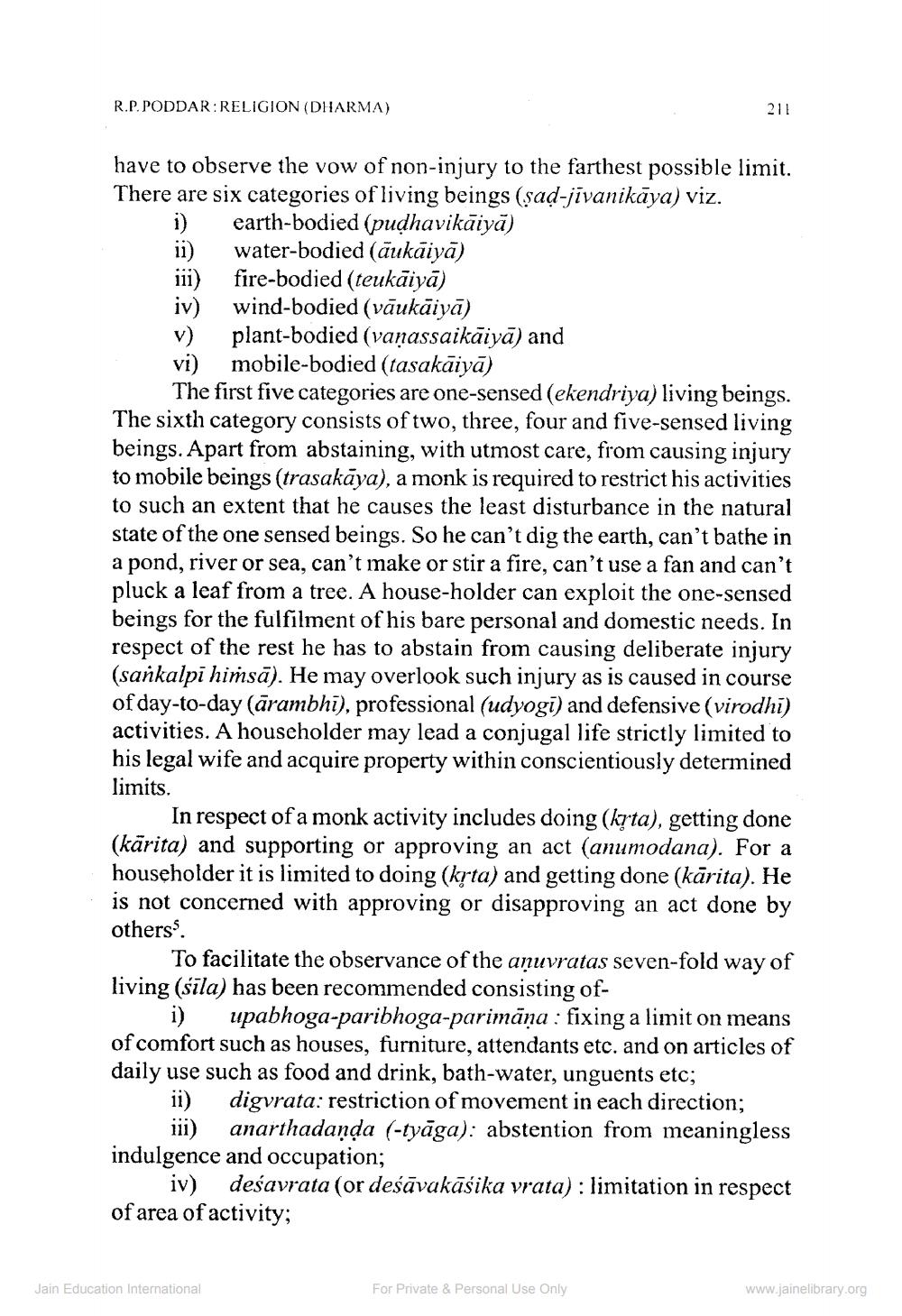________________
R.P. PODDAR:RELIGION (DHARMA)
211
have to observe the vow of non-injury to the farthest possible limit. There are six categories of living beings (sad-jīvanikāya) viz. i) earth-bodied (pudhavikāyā)
water-bodied (āukāiyā)
fire-bodied (teukāiya) iv) wind-bodied (vāukaiyā) v) plant-bodied (vanassaikāiyā) and vi) mobile-bodied (tasakāiyā)
The first five categories are one-sensed (ekendriya) living beings. The sixth category consists of two, three, four and five-sensed living beings. Apart from abstaining, with utmost care, from causing injury to mobile beings (trasakāya), a monk is required to restrict his activities to such an extent that he causes the least disturbance in the natural state of the one sensed beings. So he can't dig the earth, can't bathe in a pond, river or sea, can't make or stir a fire, can't use a fan and can't pluck a leaf from a tree. A house-holder can exploit the one-sensed beings for the fulfilment of his bare personal and domestic needs. In respect of the rest he has to abstain from causing deliberate injury (sankalpi himsā). He may overlook such injury as is caused in course of day-to-day (ārambhi), professional (udyogi) and defensive (virodhi) activities. A householder may lead a conjugal life strictly limited to his legal wife and acquire property within conscientiously determined limits.
In respect of a monk activity includes doing (kyta), getting done (kärita) and supporting or approving an act (anumodana). For a householder it is limited to doing (krta) and getting done (kārita). He is not concerned with approving or disapproving an act done by others.
To facilitate the observance of the aņuvratas seven-fold way of living (sila) has been recommended consisting of
i) upabhoga-paribhoga-parimāņa : fixing a limit on means of comfort such as houses, furniture, attendants etc. and on articles of daily use such as food and drink, bath-water, unguents etc;
ii) digvrata: restriction of movement in each direction;
iii) anarthadaņda (-tyāga): abstention from meaningless indulgence and occupation;
iv) deśavrata (or deśāvakāśika vrata) : limitation in respect of area of activity;
Jain Education International
For Private & Personal Use Only
www.jainelibrary.org




